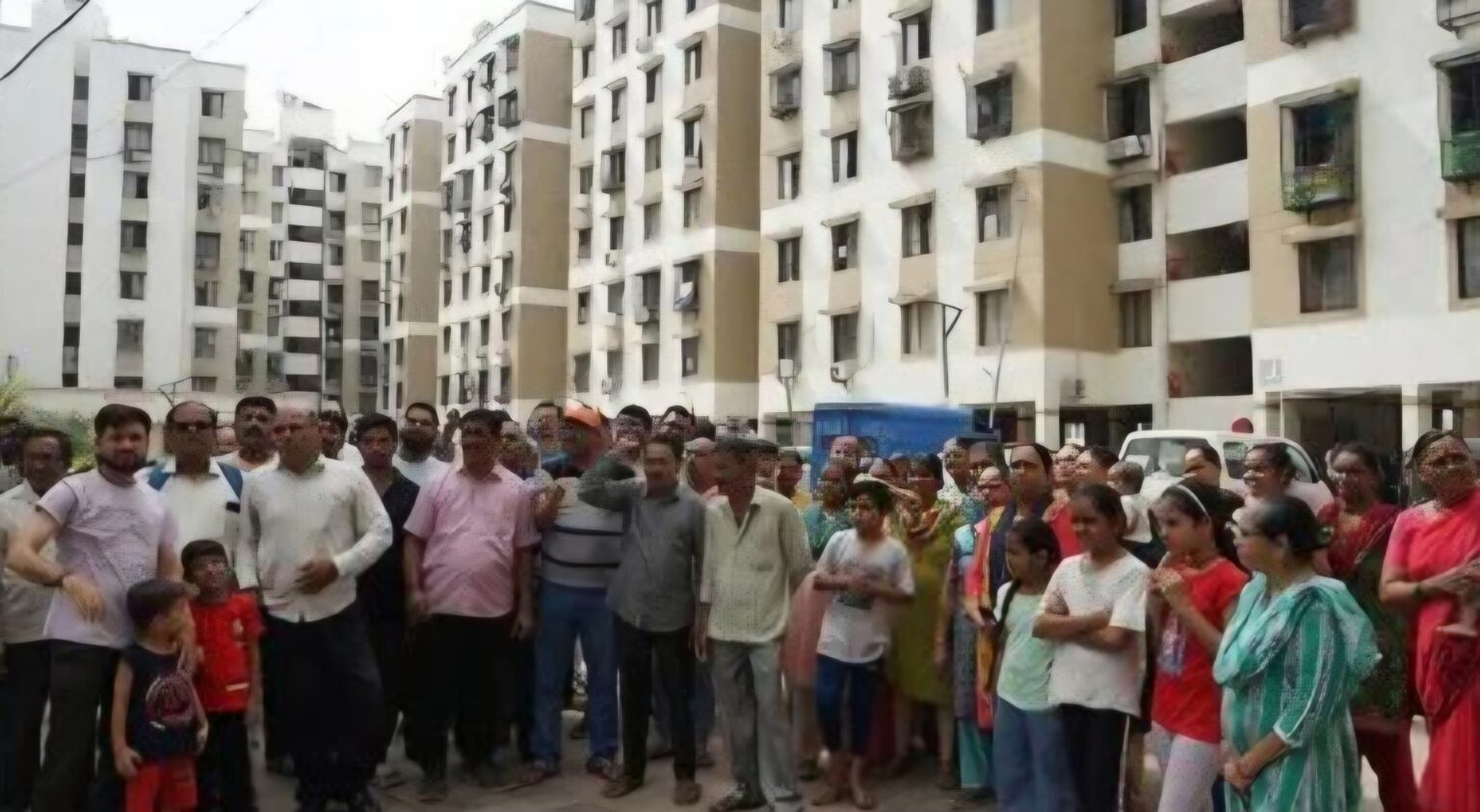
By Muslim Mirror Special Correspondent
In Surat, Gujarat, a significant controversy erupted recently when authorities sealed an apartment purchased by a Muslim woman. The action followed complaints from Hindu residents in the housing society alleging a violation of the Disturbed Areas Act, raising questions about discrimination in property transactions influenced by communal tensions.
The controversy unfolded just days after the purchase was finalized between the Muslim buyer and a Hindu seller. Local residents expressed opposition, prompting formal complaints to the Surat district collectorate that led to the sealing of the flat. According to Urdu daily Inquilab, this sealing occurred despite the woman having already made a token payment, reflecting the rising hostility not only against her but also toward the Hindu seller in Salabatpura locality.
The authorities justified their actions by citing Sections 5(a) and 5(b) of the Disturbed Areas Act, which requires individuals wishing to sell property in designated “disturbed” areas to obtain prior approval from the district collector. This law was initially designed to prevent communal polarization following incidents of violence and to regulate property transactions in areas historically marked by communal strife.
However, the Disturbed Areas Act has faced increasing criticism for being disproportionately detrimental to Muslim property owners. Frequently, they find themselves obstructed from selling their properties due to local Hindu resident opposition or political pressures. The sealing of the Surat flat exemplified this systemic challenge, with complaints targeting the sale being framed around fears of community polarization. Amendments to the law have further empowered district collectors to halt sales based on concerns of community clustering and have intensified penalties for violations, including potential imprisonment.
Numerous property transfer cases related to the Act have reached the Gujarat High Court over the years. Notably, certain cases have resulted in rulings favoring the completion of sales despite local resistance. The court’s intervention reflects ongoing legal disputes regarding the Act’s constitutionality and its implications. This reveals a broader struggle regarding the balancing of property rights and community sentiments in Gujarat’s diverse sociopolitical landscape.
This story was originally published in muslimmirror.com. Read the full story here.

